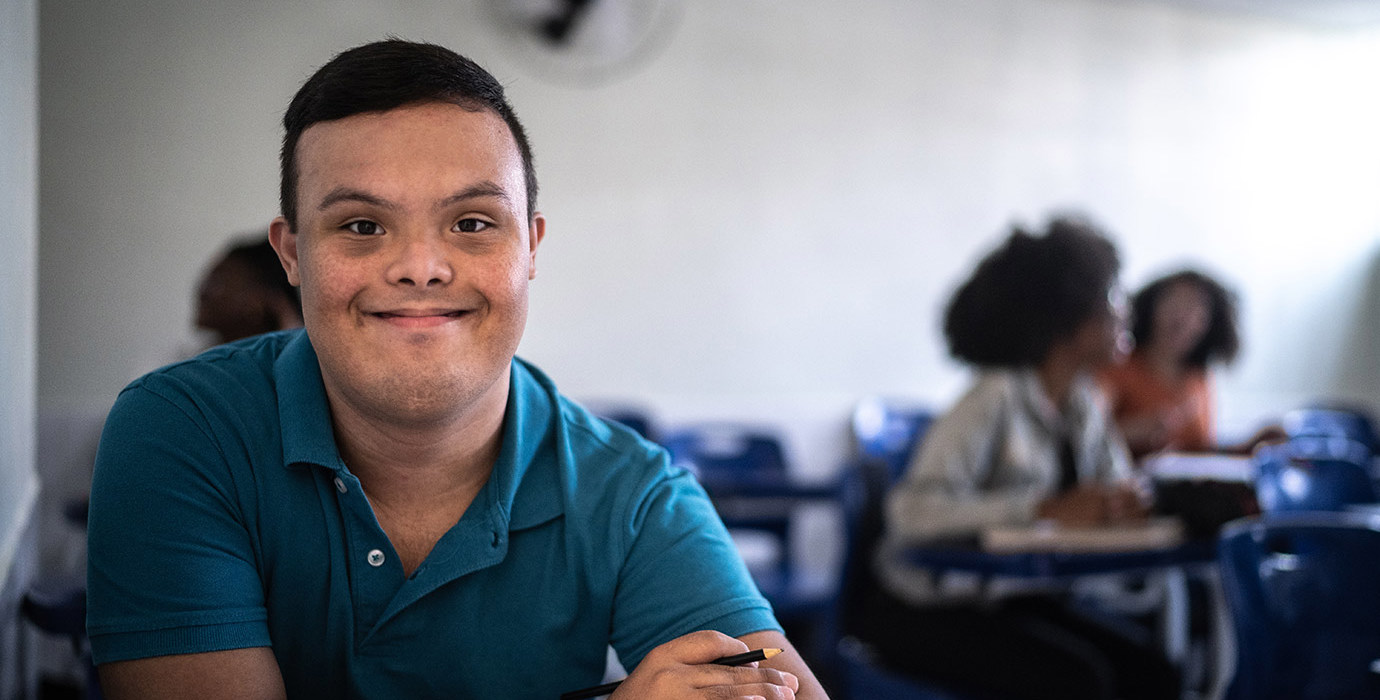
Many employers want you to have a post-secondary education—the training and learning you do after high school—before they’ll hire you.
Take some time to think about the type of job you want and what you’ll enjoy doing. Then find the inclusive post-secondary or vocational program that works for you.
Inclusive education, which originated in the K to 12 system, means you go to school with students of all abilities and get the supports and services you need for success. Inclusive programs are now offered at the following colleges, technical institutes, trade schools, universities, and schools for upgrading or learning English as a second language:
- Lethbridge College
- Mount Royal University
- NorQuest College
- Olds College
- Red Deer Polytechnic
- St. Mary’s University
- University of Alberta
- University of Calgary
Supports are available through:
- Edmonton on Campus Education Society
- Inclusion Alberta
- Integrated Post-Secondary Education Society of Alberta
- Lethbridge Family Services
In this video, Inclusion Alberta describes what your day might look like as a student:
Inclusive Post-Secondary Education: Changing Lives, Creating Possibilities [9:42]
An inclusive post-secondary education raises the employment possibilities for an individual with developmental disabilities from 20% to 80%. Alberta has more inclusive post-secondary initiatives and experience with inclusive education in higher education than any other jurisdiction in the world.
Education that’s right for you
Inclusive post-secondary and transitional vocational programs are open to every student with a developmental disability.
You’re welcome in the same classes and the same activities as every other student, with the same opportunities to learn, meet people and socialize, and work toward your career. Post-secondary inclusive education helps you make the move from high school into adult life, as you:
- Learn about subjects that interest you and will help you in your career
- Hang out with new people and meet new friends
- Explore new interests outside of class by joining a club, a student association, or another activity
- Learn life skills such as how to look after your home and build healthy relationships
Co-op programs give you hands-on experience so that part of your education happens on the job. And you’ll have help finding work in the summer and after you graduate.
All of these experiences will help you feel confident, knowing you can make decisions for yourself, learn from your mistakes, and live more independently.
What makes an education program inclusive?
In Alberta, inclusive post-secondary and vocational programs follow the same principles, which are like guidelines for how the programs work:
- You and your family feel that you’re welcome, respected, safe, and that you belong.
- You can get the education you want and need, and what you learn matters to you. There are high expectations for your success if you have the right supports.
- Everyone who works with you understands your strengths and your needs, so you can succeed and feel like you belong to your school community.
- The people who support you—your family, teachers, school staff, government, or other organizations—work together to help you succeed.
Schools, families, governments, and other organizations involved in inclusive education:
- Remove barriers so every learner can be part of the school community and feel successful
- Have opportunities to keep learning about how to provide the best educational experiences
What you can expect
You audit your classes, which means you go to class and do assignments just like other students, but you don’t receive credit or grades for the classes. You may also choose to live with other students in residence, on campus.
An advisor works with you and your family throughout your post-secondary program to help you set learning, career, and life goals. Every decision is guided by your choices and what you feel will work best. Together, you decide on your classes and activities, and the supports you need to set yourself up for success, such as:
- Modified course materials, homework, or class schedules to fit your learning style. For example, you may want all your course materials in electronic format so you can read textbooks with text-to-speech software.
- Other assistive technologies and devices, like a digital voice recorder, note-taking software, or an app that helps you study, be organized, and get your assignments done.
- A tutor to help with your classes and assignments.
- A peer mentor—another student who can help with things like taking notes in class, introducing you to other students, or learning how to get around the campus and city.
- Career options you might want to explore.
Sometimes the supports that work for you in one class might not work in another. That’s no problem. Inclusive education is flexible—how and what you learn can change to meet your needs.
Disability Related Employment Supports (DRES) from the Government of Alberta may be available to assist eligible students with documented and permanent or long-term disabilities. DRES funding pays for supports or services to reduce, alleviate, or remove barriers for education, training, work search, and employment. Examples include assistive technologies, worksite modifications, sign language interpreters, and specific disability-related software.
How will I pay for my education?
You’re responsible for tuition while you’re at school. Inclusion Alberta also offers help with tuition payment options. Many post-secondary schools in Alberta have disability services offices where you can find information and help with accommodations, services, and access to funding. As you'll be auditing classes, you may not be eligible for some types of funding.
Inclusive education works for everyone
You have the legal right to inclusive education in Alberta because post-secondary schools have a duty to accommodate—to make every reasonable effort to help you participate in school just like any other student can.
But the duty to accommodate isn’t the only reason post-secondary schools and vocational training programs offer inclusive education. They do it because they believe it’s important for all students to have the same opportunities to learn, make friends, prepare for their career, and do well.
Inclusive education is also good for teachers, staff, students, and for other organizations, governments, and community partners. It helps to design education programs that respond to the wants and needs of all students, building a better understanding of developmental disabilities, and creating a more welcoming community for everyone.
Remember, as an adult learner you have a say in the kind of education you want, the activities you want to do, and the jobs that interest you.

